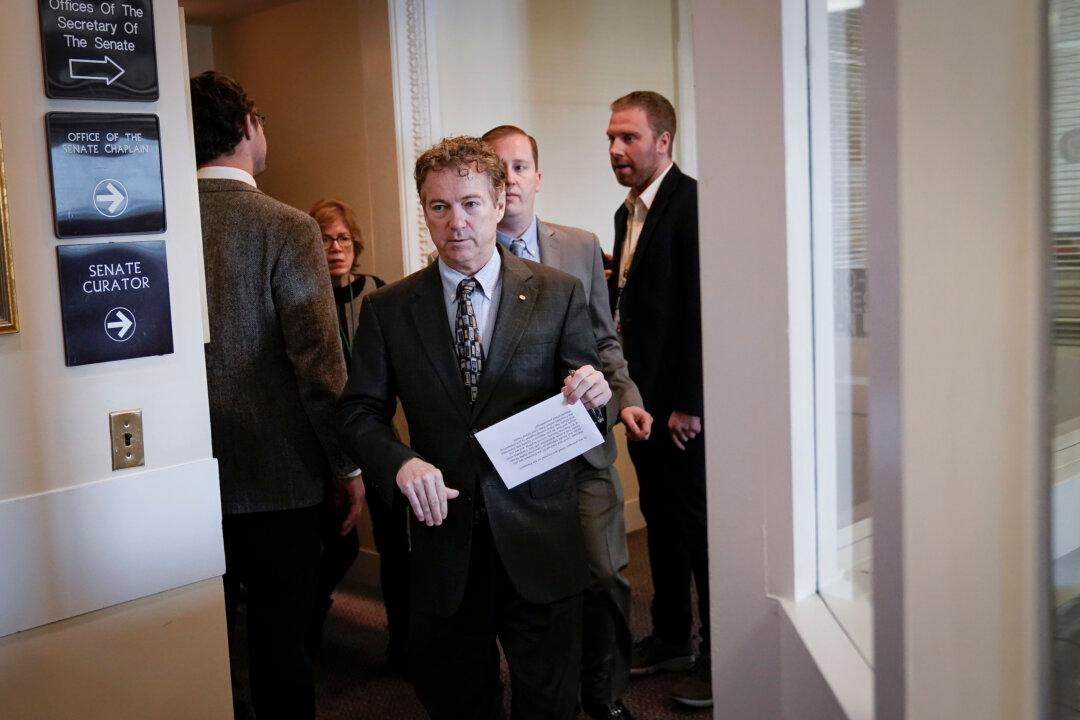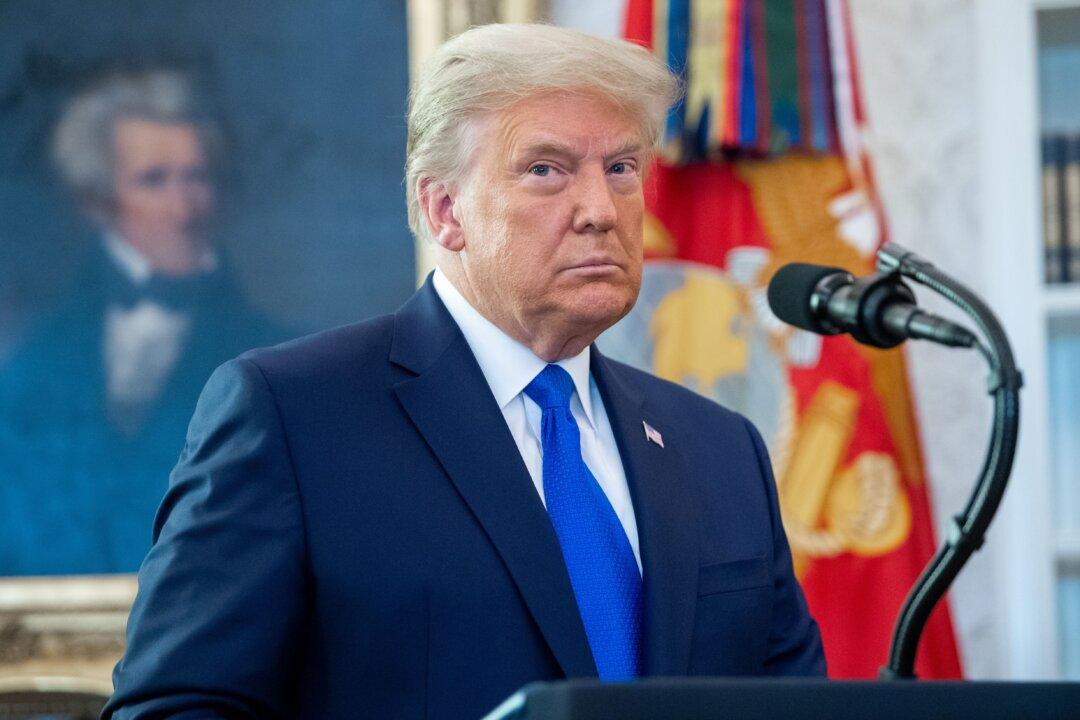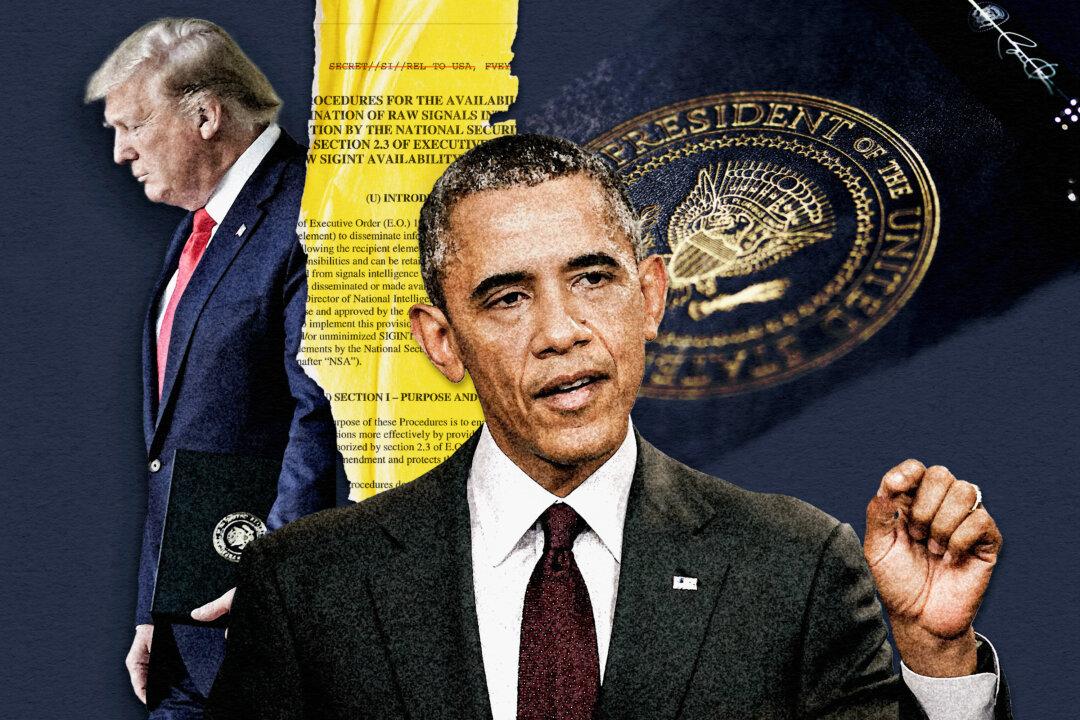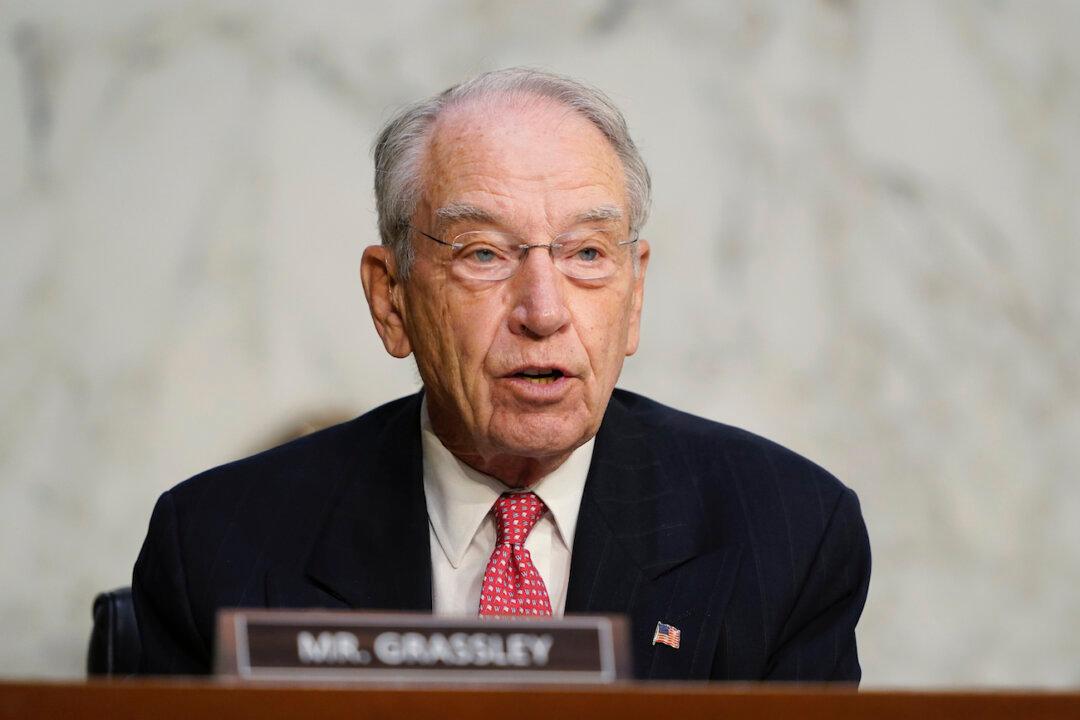Sen. Rand Paul (R-Ky.) on Feb. 4 posed a question in the Senate that Chief Justice John Roberts refused to read out loud last week in the chamber during the impeachment trial of President Donald Trump.
In his question, Paul named a former National Security Council official widely alleged to have been the whistleblower regarding a phone call between Trump and his Ukrainian counterpart Volodymyr Zelensky, which ultimately led to the president’s impeachment in the House.





